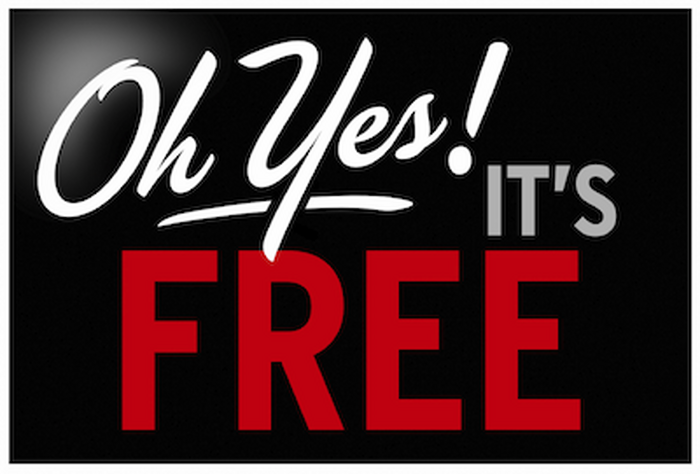
To listen to this reflection as a podcast, click here.
In the world of economics, one word is more powerful than any other.
That word is free.
In his book Predictably Irrational, economist Dan Ariely points out that “zero is not just another price.”
Getting something for nothing is a source of irrational excitement.
Things that we would never say we actually need become irresistible because they’re free. We take home more yogurt than we can possibly eat, drive an extra 10 miles to stores we would never otherwise visit, and hang on to coupons for products we don’t even use because of the siren call of “free samples.”
Ariely has conducted a number of experiments to demonstrate how things that are free affect everyday decisions.
He and his colleagues once set up a table on a college campus. They displayed two brands of chocolate beside this sign: One chocolate per customer.
One of the chocolates they offered was the humble Hershey’s Kiss. Hershey’s cranks out about 80 million of them every day. If you ever have the chance to visit Hershey, Pennsylvania, you’ll discover that even the streetlights are shaped like Kisses.
The other kind of chocolate was a Lindt truffle. Compared to a Kiss, a truffle is a serious piece of candy. They retail at about 30 cents each.
Ariely and his associates offered their two kinds of chocolate at bargain prices. Kisses sold for just one cent. Truffles cost 15 cents. Which of the two do you think were scooped up by the passing collegians?
Seventy-three percent of the students chose the truffle. That made total sense. They were getting a very good piece of chocolate for a very good price.
Then Ariely made a simple change. He dropped the price of each chocolate by one penny. The Kisses were now free. The truffles each cost 14 cents.
But this time only 31% of the students chose the truffle, even though its value was even better. A whopping 69% chose to take a Kiss.
Ariely theorized that price reductions should not make a difference in what chocolates we actually prefer. But free is just so very powerful.
Additional experiments showed that if the 14-cent price gap was maintained between the two brands of chocolate – if, for instance, the truffles were dropped from 16 cents to 15 cents and Kisses fell from two cents to one cent – people overwhelmingly chose to buy a truffle. Only when the Kisses became free were they impossible to pass up.
Interestingly, there is one realm where free appears to be too good to be true. Many people even do their utmost to pay a high price.
That would be the realm of religion.
The simplest way to describe the world’s religious options is that they come across as swimming instructions for people who are treading water 1,000 miles from shore. Your work is definitely cut out for you.
The Way of Jesus is the exception. According to the Gospels, the “good news” is that a boat has come alongside you and Jesus is extending his hand to pull you aboard.
Your rescue has been accomplished. It’s free. Will you choose to take that hand? Or will you insist, “No, thank you, I’m really good at treading water, and I think I can make it to shore”?
That’s the gist of Ephesians 2:8-9: “All we do is trust him enough to let him do it. It’s God’s gift from start to finish. We don’t play the major role. If we did, we’d probably go around bragging that we’d done the whole thing!” (The Message)
Make no mistake: All too many churches somehow manage to turn God’s free gift into something we have to earn or deserve.
But the entire thrust of the New Testament is that the cost has already been paid in full.
For most of us, it will take a lifetime to hear that message again and again, and to accept that it’s really true:
A grace-based, forgiven relationship with God is free.
And it’s even better than chocolate.
